A LETTER TO OUR COMMUNITY OF PATIENTS, SURVIVORS AND CAREGIVERS
Last updated March 18, 2020
Dear Friends,
Here at the Colon Cancer Foundation we are thinking of our community of colorectal cancer patients, survivors, caregivers, and loved ones during this trying time. Your health, safety, quality of life, and well-being are our top priorities.
The new strain of coronavirus, or COVID-19, is disrupting the lives of millions in the United States and in countries across the world. Many of our closest partners in the fight against colorectal cancer are now being asked to join the race against time to ensure their local health care communities are ready and to the slow the spread of COVID-19. Researchers, public health officials, health systems and individual clinicians are all playing a role in mitigating the effects of COVID-19.
 While they wage the clinical battle against COVID-19 we strongly encourage you to take action to slow the spread, #flattenthecurve, and reduce your risk of contracting the virus. Anyone can get the new coronavirus, the virus does not discriminate on the basis of sex, health, age nor gender – anyone can get it.
While they wage the clinical battle against COVID-19 we strongly encourage you to take action to slow the spread, #flattenthecurve, and reduce your risk of contracting the virus. Anyone can get the new coronavirus, the virus does not discriminate on the basis of sex, health, age nor gender – anyone can get it.
However, cancer patients and survivors have an increased risk of complications and severe events from COVID-19 due to treatments that suppress the immune system. “…patients with any type of advanced cancer are going to be at much higher risk for bad outcomes,” according to Paul A. Volberding, MD, Chief Medical Editor of Infectious Disease News.
ASCO and Cancernet.com published an article yesterday, “Coronavirus 2019: What People With Cancer Need to Know”. Dr. Merry Jennifer Markham, MD, FACP addressed the following question: Are there special precautions that people with cancer should take?
“People with cancer, people who are in active cancer treatment, older patients, and people with other serious chronic medical conditions, such as lung disease, diabetes, or heart disease, may be at higher risk for the more severe form of COVID-19. The same rules apply for people with cancer as for those without cancer: Be sure to wash your hands well, and wash them frequently. Avoid touching your face, and avoid close contact with people who are sick.
“People who are at higher risk of getting very sick from COVID-19 should avoid cruise-ship travel and all other non-essential travel during this time of COVID-19 outbreak. Stay at home as much as possible to reduce exposure to other people. It is safest to avoid social gatherings. In order to stay connected to your support system, make plans to connect with your family and friends virtually, through video chat or phone calls.
“Be sure to have enough essential medications, both prescription and over-the-counter, to last for up to a month. Create an emergency contact list that includes family, friends, neighbors, and community or neighborhood resources who may be able to provide information or assistance to you if you need it.
“Finally, if you are scheduled for cancer treatments during the COVID-19 outbreak, have a discussion with your oncologist about the benefits and risks of continuing or delaying treatment.”
We encourage you to visit these websites for the most current information and guidance:
- The New York City Department of Health (NYCDOH),
- The New York State Department of Health; and
- The U.S. Centers for Disease Control and Prevention(CDC).
We also strongly encourage you to take action to reduce your risk of getting sick with the disease. For more information please visit: https://www.cdc.gov/coronavirus/2019-ncov/specific-groups/high-risk-complications.html
We know the constant COVID-19 updates, including news reports, travel restrictions, concerns for your own and your loved ones’ health can lead to fear and anxiety. For some tips on staying healthy emotionally, mentally and physically you can visit these three websites:
https://www.yalemedicine.org/stories/covid-19-anxiety/
https://www.cdc.gov/coronavirus/2019-ncov/prepare/managing-stress-anxiety.html
What the Colon Cancer Foundation is doing:
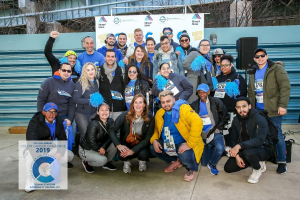 We have been working nonstop to keep our community up to date and as healthy as possible.
We have been working nonstop to keep our community up to date and as healthy as possible.
This unforeseen and ever evolving situation requires us to adapt however it also gives us the opportunity to innovate. We are exploring technology that will offer us a virtual option to keep our 17 year signature event – the Colon Cancer Challenge – and our critical work in the fight against colorectal cancer laser focused and moving forward. COVID-19 does not lessen or change the needs of our community – over 1,000 people will lose their lives to colorectal cancer this week alone.
We remain committed to our mission, to you and to the thousands who are battling colorectal cancer right now.
On behalf of everyone here at Team Colon Cancer Challenge take care of yourself and your loved ones. We will get through this together.
Cindy Borassi
Interim President
Colon Cancer Foundation

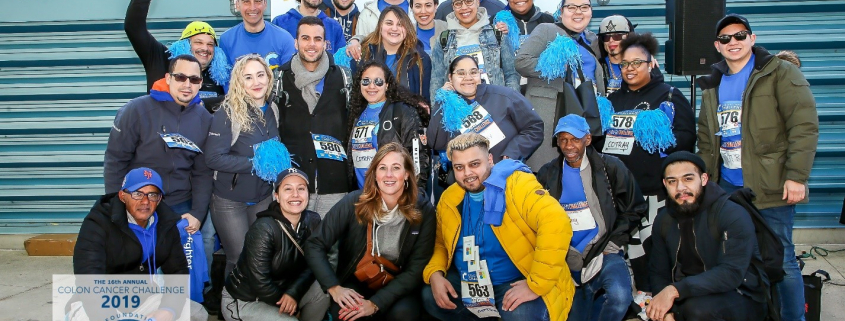
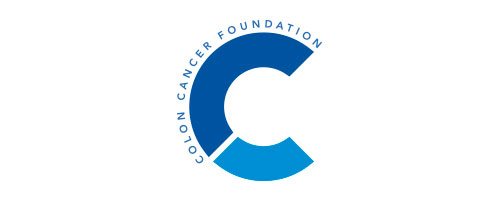

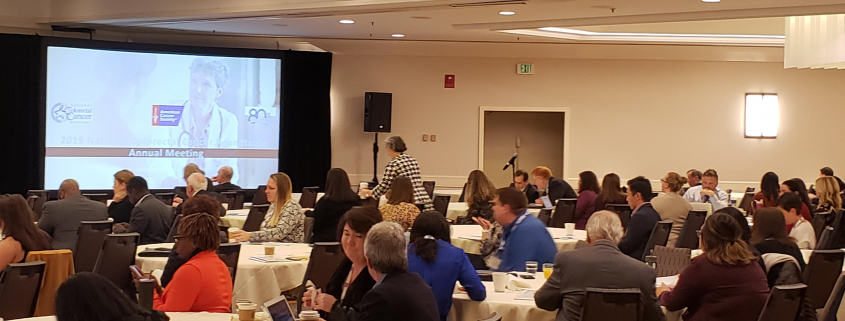
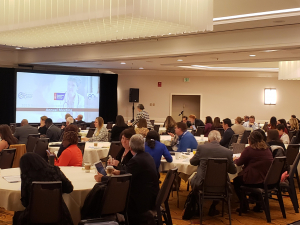 the importance of honoring Dr. Weber’s legacy by accepting his challenge to continue to ask the difficult questions and listen to every idea, even if these ideas are, as one attendee put it, “very bold.” A patient-advocate spoke of Tom’s friendship and how she felt especially valued by him and his dedication to the emerging early-age CRC public health issue.
the importance of honoring Dr. Weber’s legacy by accepting his challenge to continue to ask the difficult questions and listen to every idea, even if these ideas are, as one attendee put it, “very bold.” A patient-advocate spoke of Tom’s friendship and how she felt especially valued by him and his dedication to the emerging early-age CRC public health issue.